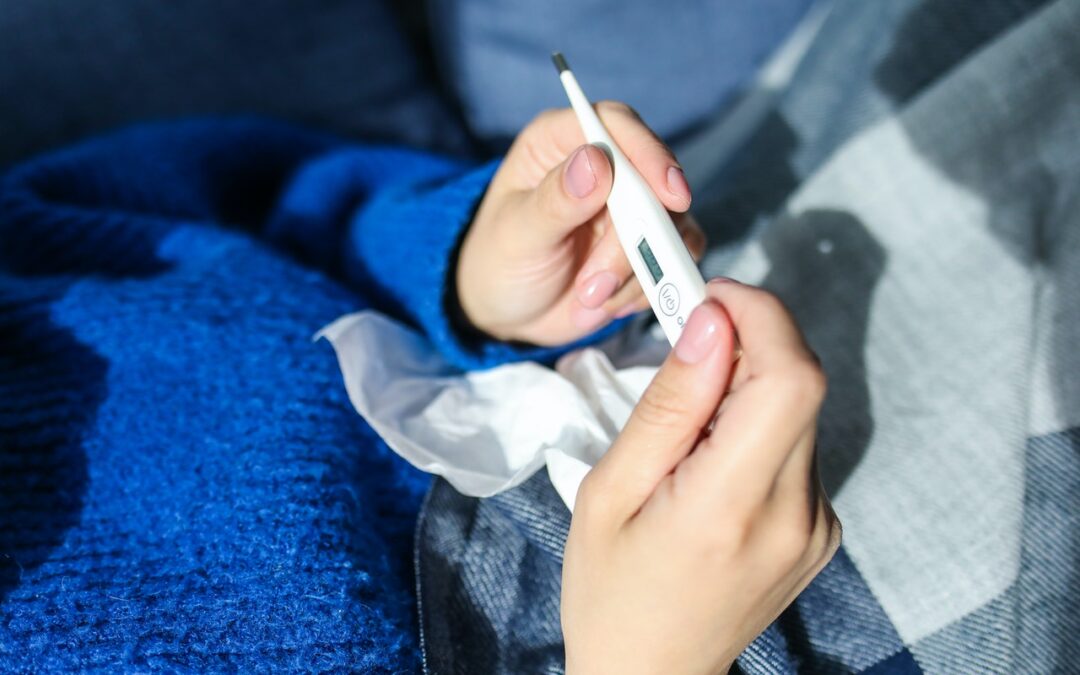Most of us are familiar with the common symptoms of COVID-19. These include fever, cough, and shortness of breath. However, don’t take this to the bank! COVID-19 does not always present with these symptoms! Some people with COVID experience different symptoms altogether. A recent study has revealed a variety of additional symptoms that can present themselves including, loss of appetite, loss of smell, diarrhea, fatigue, confusion, headaches, and muscle pain.
The COVID Symptom Study:
The COVID Symptom Study has been ongoing since March and over 4 million people in the US and UK are participating. This makes it the largest study in the world of its kind. Participating is easy: people simply log their health and symptoms on a daily basis through the COVID Symptom Study app (even if they are feeling well). Scientists have been analyzing this self-reported data from the app users and are making several new discoveries.
One such discovery is the finding that there are six distinct clusters of symptoms that those with COVID-19 can present with. Each cluster also dictates how severely the virus will act upon a person and whether they need respiratory support. This particular study looked at 2,700 app users and their self-reported symptoms between May 1st and May 28th, 2020. The vast majority of these participants were from the UK with nearly 8% from the United States.
While the severity of these symptom clusters varies among COVID-infected people, the first three clusters are statistically less severe than the last three clusters. Let’s take a look:
Six Clusters of Symptoms for COVID:
1) Flu-like with no fever: loss of smell, headache, cough, chest pain, sore throat, muscle pain, no fever. 1.5% need respiratory support
2) Flu-like with fever: loss of smell, headache, cough, sore throat, hoarseness, loss of appetite, fever. 4.4% need respiratory support
3) Gastrointestinal: loss of smell, headache, no cough, no fever, chest pain, sore throat, diarrhea. 3.3% need respiratory support
4) Severe level 1- Fatigue: loss of smell, headache, cough, chest pain, hoarseness, fever, fatigue. 8.6% need respiratory support
5) Severe level 2- Confusion: loss of smell, headache, cough, chest pain, sore throat, hoarseness, loss of appetite, fever, fatigue, muscle pain, confusion. 9.9% need respiratory support
6) Severe level 3- Abdominal and Respiratory: loss of smell, headache, cough, chest pain, sore throat, hoarseness, loss of appetite, fever, fatigue, muscle pain, confusion, shortness of breath, diarrhea, abdominal pain. 19.8% need respiratory support
As you can see, loss of smell and headache are the only symptoms common in all six clusters, while cough, fever, chest pain, and sore throat are common to five of the six clusters. Two to three of the clusters include abdominal symptoms, hoarseness, loss of appetite, confusion, fatigue, and muscle pain. Surprisingly, shortness of breath is only found in one cluster.
Cluster Severity and Who is at Risk:
These symptom clusters were further broken down by the likelihood of patients needing respiratory support. It is clear that cluster 6 patients have a much higher rate of needing support than those of other clusters. Of the study participants in cluster 6, almost 50% of them had to go to the hospital. This is compared to 16% hospitalized from cluster 1.
Those participants who were in clusters 4, 5, and 6 were statistically older and more fragile than those in clusters 1, 2, and 3. They were also commonly overweight or had a chronic health condition such as diabetes or lung disease.
The importance of this study is to help doctors and patients be aware of the various levels of COVID symptoms, and to act quickly if a person falls into a high-risk symptom cluster.
Our Virtual Immune Program:
As of this writing, and in an effort to help prevent illness and hospitalization (from COVID or any viral or bacterial infection), our team at Healthy Connections has recently launched a virtual immune program! This program is for those who may be at higher risk for getting sick, takes care of those who are sick, or who have tested positive for COVID. Contact Healthy Connections to learn more about the immune program!
Reference:
https://www.medrxiv.org/content/10.1101/2020.06.12.20129056v1.full.pdf


you guys stay healthy and good. We are trying our best to do the same.
Glad to hear you all are staying safe. Hope to listen to you all playing music soon. Dr J